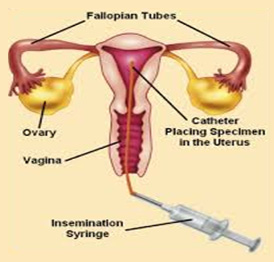Intra-Uterine Insemination (IUI)
What is IUI?
IUI is also called artificial insemination. This is the simplest form of fertility treatment. IUI is easy and inexpensive but may need to be repeated multiple times as pregnancy rates are low. IUI is not effective for couples with:
- Severe endometriosis
- Severe tubal blockage or tubal damage
- Ovarian failure & menopause
- Severe male factor infertility
How does IUI work?
 IUI is a fertility treatment that uses a catheter or insemination syringe to place a number of washed sperm directly into the uterus. The aim is to increase the number of sperm to reach egg that travels down the fallopian tubes and subsequently increase the chance of fertilization. The length of procedure only take 5 minutes. No sedation is required. Patients are advised to have a full bladder prior to the procedure; the procedure will be guided by abdominal ultrasound.
IUI is a fertility treatment that uses a catheter or insemination syringe to place a number of washed sperm directly into the uterus. The aim is to increase the number of sperm to reach egg that travels down the fallopian tubes and subsequently increase the chance of fertilization. The length of procedure only take 5 minutes. No sedation is required. Patients are advised to have a full bladder prior to the procedure; the procedure will be guided by abdominal ultrasound.
Three weeks after treatment, patient may do a urine pregnancy test, however, if the treatment is unsuccessful, patient’s period may arrive two weeks after the procedure.
How successful is IUI?
The average success rate for IUI ranges from 10-20% per cycle. Although the success rate depends primarily on the health of both the sperm and the woman, many studies also have shown that IUI with drugs to stimulate multiple eggs to ovulate gives a higher success rate than doing IUI without drugs (natural cycle IUI).